Scientists Discover a New Signaling Pathway and Design a Novel Drug for Liver Fibrosis
Health & Behavior
By:
Published Date
By:
Share This:
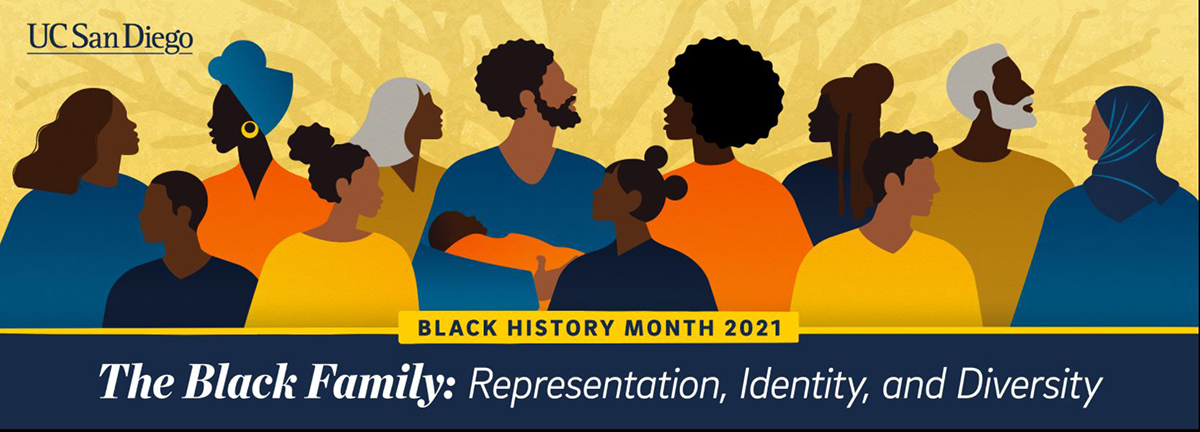
UC San Diego celebrates Black History Month in February, with this year’s theme focusing on “The Black Family: Representation, Identity, and Diversity.” We invited students, faculty and staff on campus to share personal memories about family, meaningful gatherings in community, as well as highlight individuals whose leadership has made a difference in the Black community.
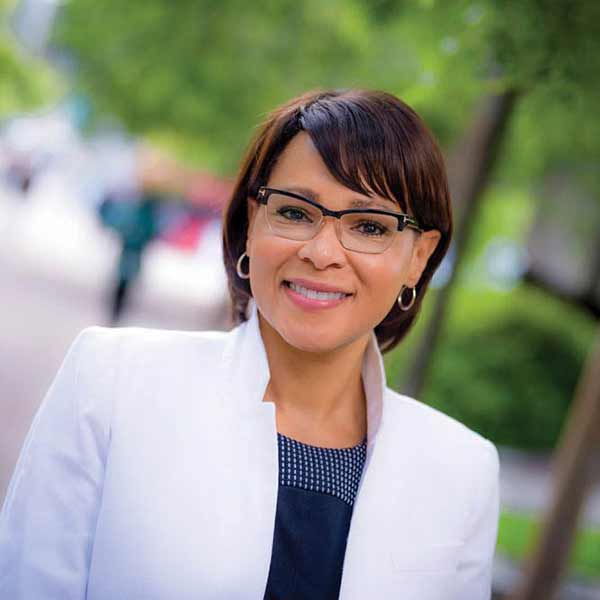
“I have very fond memories of celebrating Juneteenth—a holiday celebrating the emancipation of my ancestors who had been enslaved in the United States—that originated in my hometown, Galveston, Texas. Juneteenth was always an occasion for our family to gather in celebration, remembrance and deep appreciation for the perseverance of our ancestors.”
— Becky Petitt, vice chancellor for Equity, Diversity, and Inclusion
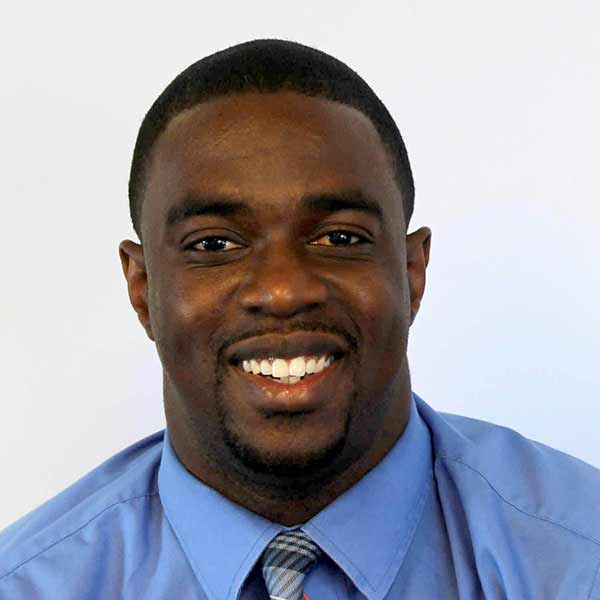
“Black unity—a principle within the Black community that encourages care for one another—help shaped the person I am today. My fondest memory of feeling supported by my community was in my freshman year of high school when a Black teacher ingratiated me and became my mentor. Our relationship evolved from a student-teacher bond to me being a part of her extended family. She sparked a desire for me to pursue a career in higher education to make a meaningful impact on students, particularly those who are marginalized and under-resourced.”
— Franklin Garrett, director of the Student Success Center in the Division of Physical Sciences and doctoral student in UC San Diego’s Educational Leadership program
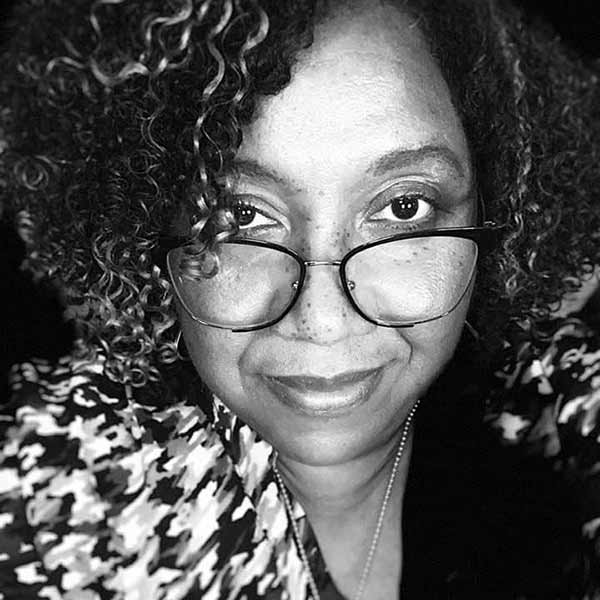
“In the good old days—pre-2020—I took part in a gathering of Black business, community organizations, entertainers and community members every first Saturday. We reveled in the growth and achievements of each other’s children and grandchildren, shared news and acted on calls to service. The immersive sensory experience of good food smells, fragranced products and each other’s goods as well as the performances is organic in person. It is one of things I’m really looking forward to when we can all gather together without the current level of restriction.”
— LaWana Richmond, Organizational Development Manager for Transportation Services and staff co-chair for the Faculty and Staff Giving Council

“Growing up in a moderately-sized Texas town, I wasn't commonly immersed in the Black community, both because of the smaller size of the Black population in my town and the fact that my family members were spread across the state and country. Family reunions allowed me to connect with cousins, aunts and uncles that represented the many facets of being Black in America. We spoke a language, had a style and enjoyed our time together in a way I couldn't ever experience by myself in my hometown. Family reunions allowed me to be my authentic self with people who understood me. As I sit in La Jolla writing this, I find myself feeling like that kid back in my hometown, longing for those summer reunions.”
— Jeramy Dedrick, 2nd year Climate Science doctoral student at Scripps Institution of Oceanography
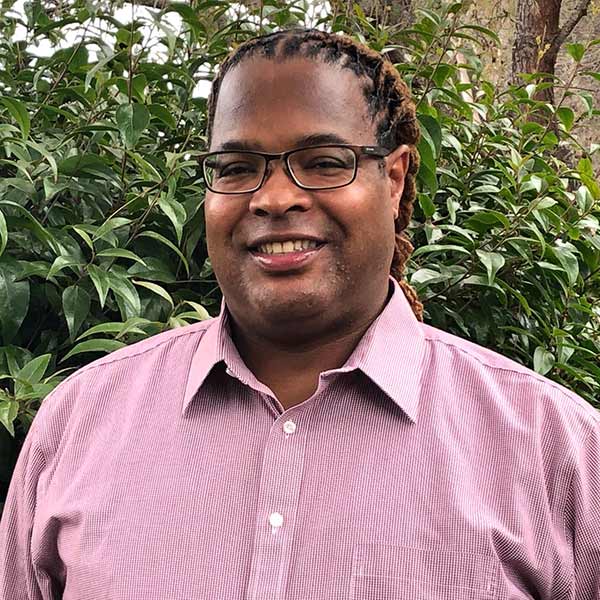
“One tradition that we have is during birthdays, we have to sing the traditional version of happy birthday quickly followed by the Stevie Wonder chorus. While we didn’t celebrate all birthdays pre-pandemic, now it’s pretty mandatory that we have a birthday Zoom call for every person. It’s been nice to make sure that my family, while spread across the country and across time zones, has been able to stay connected in ways that are closer than we’ve ever been before.”
— Kafele Khalfani, Dean of Student Affairs for Warren College

“Though she has recently passed, I consider my grandmother to be my biggest inspiration and person that I admire. Throughout her 88 years of life, she spent her time fighting for the preservation of Black history and successes in education. Growing up, she would take me to our public library annually for Black History Month where she curated exhibits of local Black History that had mostly been erased by the city's government (though she maintained all of the secrets). Watching her work on these requested displays, she would always tell me the success of our people and the potential we had. She inspired me to work and succeed in all of my endeavors and to pursue opportunities when or wherever I could. I use her memory as inspiration in my own life to achieve any goals I set for myself.”
— Jeramy Dedrick, 2nd year Climate Science doctoral student at Scripps Institution of Oceanography

“I admire the leadership and advocacy Abdimalik Buul, Ed.D. provides to the Black community. Buul is an anti-racist scholar, college counselor, and assistant professor at San Diego City College. He advocates for educational equality through his scholarship, pedagogy and community volunteerism. Buul also leads statewide efforts in race-conscious practices and antiracism training.”
— Franklin Garrett, director of the Student Success Center in the Division of Physical Sciences and doctoral student in UC San Diego’s Educational Leadership program

“In the last election, a lot of press was given to Stacey Abrams for turning Georgia Blue. Stacey was able to use her national presence to help bring focus to the fight for equity in elections. I also want to highlight all the other folks who were doing that same work who didn’t get the same.”
— Kafele Khalfani, Dean of Student Affairs for Warren College
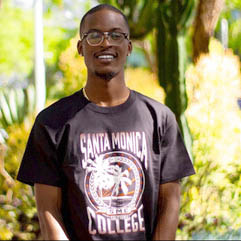
“I particularly love Malcolm X’s work. I feel that people haven’t studied him enough, and only look at him as a militant man. I believe that his message was that people in the Black community needed to learn to combat the representations of themselves in the media and to see themselves outside of the view of ‘White’ America. Only then would they be able to unify, study, and ‘be free.’ Considering that many things that have happened in the past are still prevalent today, we must hold one another accountable for furthering the culture of Blacks in America. Sometimes it may not be what people want to hear, but it's what they need to hear.”
— Anthony Longmire, senior studying Communications with a minor in Entrepreneurship and Innovation

“San Diego Councilmember Monica Montgomery, also known as the People’s Councilmember, is an excellent example of ethical, balanced, community-centered leadership. The level of engagement she creates for constituents ensures we understand even the decisions we don’t agree with and more importantly, we feel heard in a way that goes beyond performative inclusion. Her platform and priorities are based on community input and derived through community engagement.”
— LaWana Richmond, Organizational Development Manager for Transportation Services and staff co-chair for the Faculty and Staff Giving Council
Share This:
Keep up with all the latest from UC San Diego. Subscribe to the newsletter today.